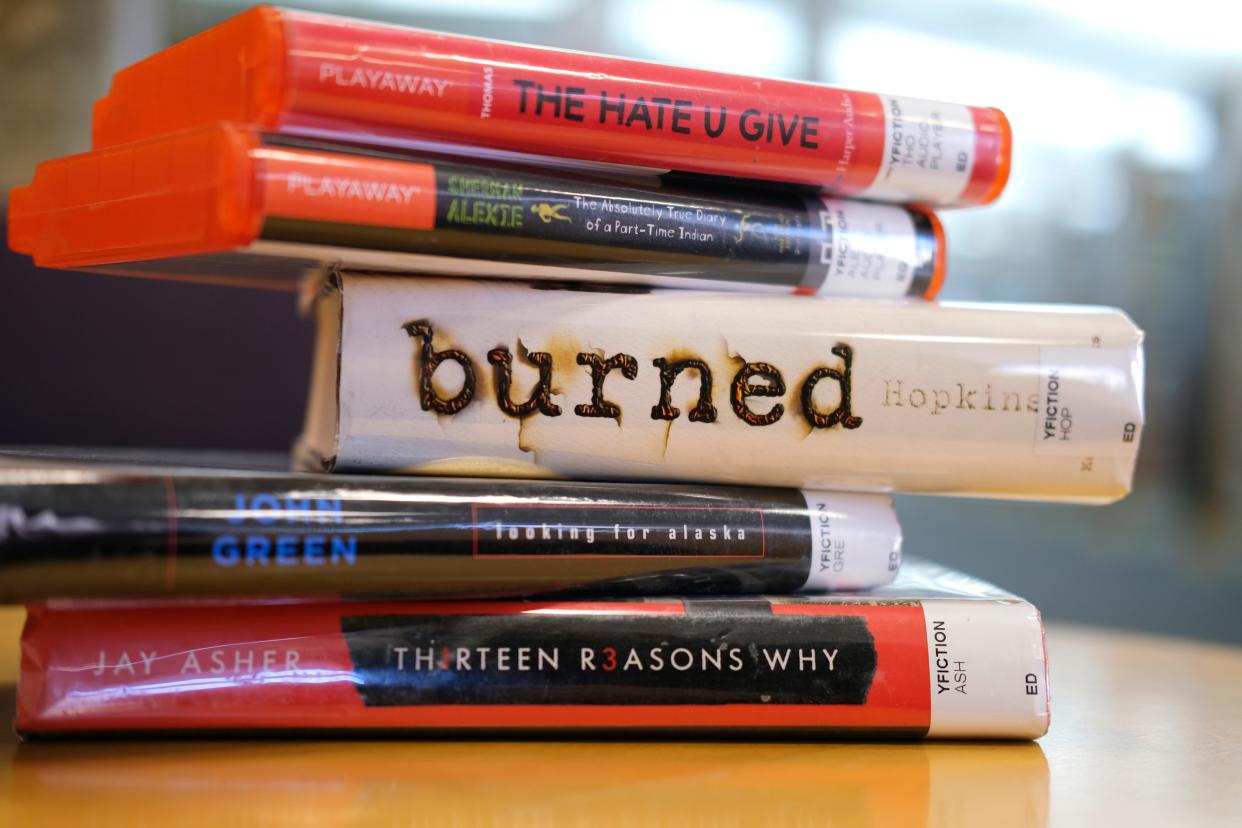Guest: It's Banned Books Week. The fight continues for kids to read, learn in Oklahoma

For the State of Oklahoma, Banned Books Week falls in a particularly poignant month. October, also 2SLGBTQ+ History Month, will mark two years since the ACLU of Oklahoma and partners filed litigation against our state’s classroom censorship law, created by the passing of HB 1775. The vague language of this law restricts what can be taught in Oklahoma classrooms regarding race and gender, placing severe limitations on what Oklahoma students are learning.
Banned Books Week provides us with one week out of the year to celebrate the freedom to read and evaluate the state’s impact on our students' education.
This year, Banned Books Week occurs Oct. 1-7, with a theme of Let Freedom Read. This national event calls attention to literary censorship and how it affects communities. Banned Books Week brings awareness to both banned books (any book that has been removed or restricted from a center of education) and challenged books (those titles that have faced an attempt to be removed). Challenges can come from anyone, be it an elected official, a community group, or even a sole individual. In fact, according to a nationwide analysis conducted by The Washington Post “a mere 11 people are responsible for the majority of the 1,000 challenges in the 37 states the newspaper analyzed.”
In April, State Superintendent Ryan Walters distributed information on “pornographic books” he claimed were in Oklahoma schools. The list focused heavily on 2SLGBTQ+ related titles. While officials have sought to scare the public into believing that Oklahoma schools are wrought with materials deemed unsuitable, the Oklahoma State Department of Education does not even maintain a list of so-called “pornographic” books they claim are in school libraries.
In the State of Oklahoma, most of the censorship we see comes from the State Board of Education threatening schools with lowering their accreditation status if books regarding sex, sexuality, morality, or religion are found in schools without prior approval. The promulgating rules, which were approved by Gov. Kevin Stitt, also give more power to individual parents to request to ban books. This means one parent or group can dictate the curricula for an entire class if they object to a book in the required reading. While the opinions of these groups and individuals serve only themselves and do not represent whole communities, they still impact the education of students in Oklahoma.
Additional bills regarding classroom and library censorship have been proposed every session since the passage of HB 1775, and although none have passed, the state superintendent and governor continue to experience additional legal consequences, including related to the handling of former Norman High School teacher, Summer Boismier, who posted a QR code link to the Brooklyn Public Library Books Unbanned Project.
Across the country, state officials are censoring educators and undermining equitable education programs. This coordinated attack on inclusive education includes book banning. The ACLU has long supported inclusivity in education and will continue to do so for the future of learning in the State of Oklahoma.
As HB 1775 continues to censor conversations around race and gender in classrooms across Oklahoma, we mark Banned Books Week as a time to fight back against further censorship and celebrate the Freedom to Read. While Banned Books Week is one week out of the year, it is just a reminder for us to continue fighting to protect our rights to read, learn, and share ideas, free from viewpoint-based censorship.

Cindy Nguyen is the policy director for the ACLU of Oklahoma.
This article originally appeared on Oklahoman: It's Banned Books Week. Teach Oklahoma kids to read

